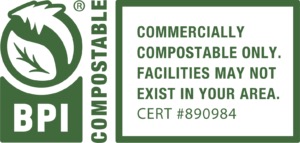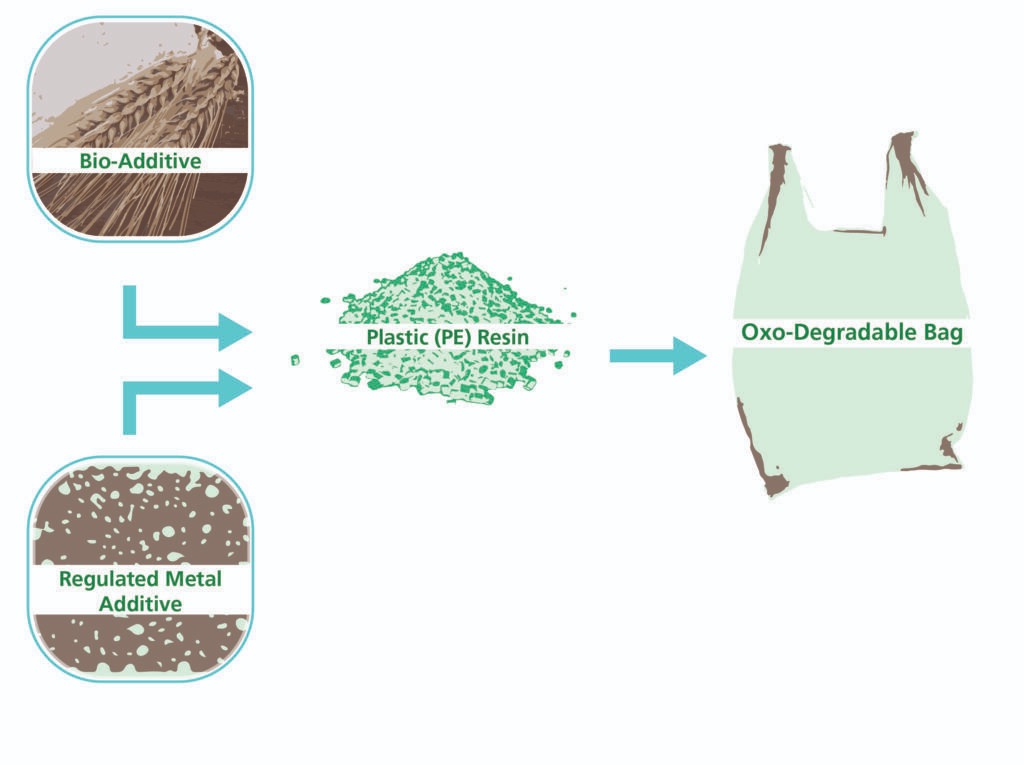Table of Contents
ToggleIntroduction
The packaging industry is rife with misleading claims, but few are as deceptive as “oxo-degradable” bags. Marketed as an eco-friendly alternative, these bags are now banned across the European Union, the UK, and several other countries. If your business is using—or considering—oxo-degradable packaging, this article explains the risks, the science, and the truly sustainable alternatives.
What Are Oxo-Degradable Bags?
Oxo-degradable bags are conventional plastic bags (usually polyethylene or polypropylene) mixed with chemical additives (e.g., metal salts like cobalt or manganese). These additives accelerate fragmentation when exposed to heat and oxygen, causing the plastic to break down into tiny particles.
Key problem: While the bags disintegrate, they do not truly biodegrade. Instead, they turn into microplastics, contaminating soil and water indefinitely.
Why Europe Banned Oxo-Degradable Plastics
The European Union’s Single-Use Plastics Directive (2019/904) explicitly prohibits oxo-degradable plastics. Here’s why:
1. They Create Microplastic Pollution
- A 2020 study by Plymouth University found that oxo-degradable bags break down into microplastics within 18–24 months but remain in the environment for decades.
- Unlike compostable plastics (which turn into CO₂, water, and biomass), oxo-plastics simply become invisible pollutants.
2. They Disrupt Composting Systems
- When oxo-degradable bags enter industrial composting facilities, they fragment into microplastics, contaminating the compost.
- In 2021, a Dutch waste management company reported €200,000 in losses after oxo-plastics ruined an entire batch of organic fertilizer.
3. They Mislead Consumers
- Terms like “oxo-biodegradable” and “degradable plastic” falsely imply environmental benefits.
- The UK’s Plastic Packaging Tax (2022) penalizes companies using such misleading claims.
How to Spot and Avoid Oxo-Degradable Bags
Many suppliers still sell oxo-degradable bags under greenwashed labels. Protect your business by checking for:
✅ Certifications to Trust:
- EN 13432 (EU compostable standard)
- OK Compost (TÜV Austria certification)
- BPI (US compostability standard)
❌ Red Flags:
- Vague terms like “degradable,” “oxo-biodegradable,” or “fragmentable”
- No third-party certifications
- Suppliers who cannot provide lab test reports
Truly Sustainable Alternatives
If you need legally compliant, eco-friendly packaging, consider:
- Industrial Compostable Bags (PLA/PBAT)
- Certified under EN 13432
- Breaks down completely in composting facilities
- Ideal for food packaging and disposable items
- Home Compostable Bags (Starch-based)
- Decomposes in backyard compost bins
- Best for retail and consumer use
- Marine-Degradable Options (PHA-based)
- Breaks down even in seawater
- Suitable for coastal businesses
Conclusion: Don’t Fall for Greenwashing
Oxo-degradable bags are not a solution—they’re a regulatory and environmental liability. Businesses that switch to certified compostable or biodegradable alternatives avoid fines, protect their reputation, and contribute to real sustainability.
Need Compliant Packaging?
→ [Request a Free Sample Kit] of our EU-approved biodegradable bags.


